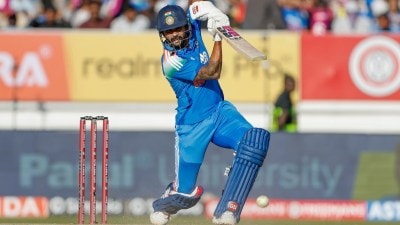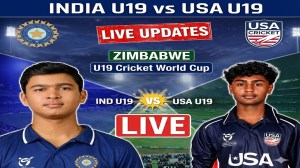Stop the sparring
Jayalalitha has chosen to describe her engagement on the Cauvery issue in boxing terminology. Which is just as well, because the time has...

Jayalalitha has chosen to describe her engagement on the Cauvery issue in boxing terminology. Which is just as well, because the time has come for her to stop her celebrated sparring on the river dispute and hang up her gloves.
The boxing bout has in the past paid her rich political dividends 8212; her fast on Marina Beach for Cauvery waters while she was the chief minister of Tamil Nadu was considered something of a master stroke. But it may just be that she is overreaching herself this time.
Her obstreperousness may not prove as politically popular today as it was in the past. The reason for this is not hard to seek. For the first time in years, there is a glimmer of hope among the people, not just in Karnataka but in Tamil Nadu as well, that the Cauvery river waters issue which has dogged both states for years, which has caused violence and much bitterness, is on the verge of being resolved.
To put a spoke in the wheel of this process for blatantly political reasons could invite political retributionand Jayalalitha would be extremely foolhardy to overlook this aspect.
There may be a few anomalies in the scheme that the Central government and four state governments negotiated last Friday. The role of the monitoring committee within the proposed River Valley Authority RVA remains blurred and how the RVA, headed by the Prime Minister and comprising the chief ministers of the four basin states, proposes to exercise its authority is still undefined.
There is also substance in Jayalalitha8217;s accusation that the RVA has been constituted as a political body rather than a statutory one. There may even be some reason for her to sulk over not being consulted during the negotiations. But the fact is that Karnataka has formally committed itself to releasing 205 tmc ft water to Tamil Nadu every year as required of it under the 1991 interim order of the Cauvery Water Disputes Tribunal, and this is a big step forward.
Reaching some consensus on this vexed issue as the four chief ministers and the Prime Ministerdid on Friday was truly an uphill task. To jeopardise this entire process and cussedly insist on the notification of the quot;originalquot; draft scheme, as Jayalalitha is now doing, would be a decidedly retrogressive move.
This is why the Vajpayee government should have no hesitation is pressing ahead with the scheme, whether this means notifying it or informing the Supreme Court about it when the Cauvery water disputes case comes up before it today.
There is a simple point to be made. Sharing river waters amicably is a far bigger project than settling political scores. The first concerns millions of people, the second, only two individuals 8212; powerful though they be.
Jayalalitha may maintain that she was not consulted and therefore has no collective responsibility towards seeing the scheme through. Even if this is the case, she cannot absolve herself of the responsibility she has to the people of her state. For this reason, if for no other, she must desist from being obdurate and cooperate with the Centre inresolving the vexed Cauvery waters issue.
- 01
- 02
- 03
- 04
- 05































